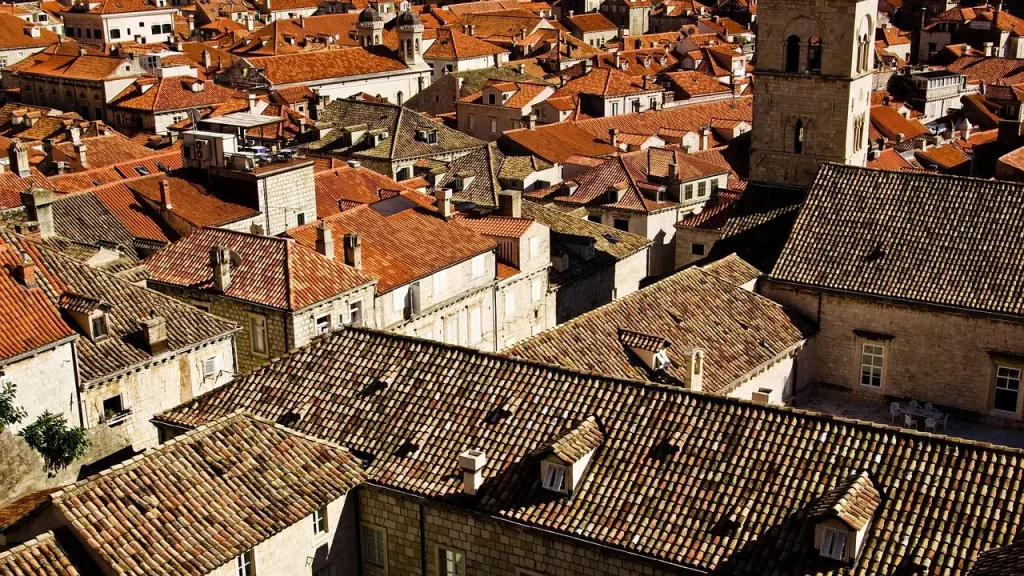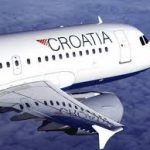In this millennium, Croatian tourism has experienced an explosion of development. From 2000 to 2018, the number of overnight stays increased by 135%.
Two projects were the key triggers: the construction of nearly a thousand kilometers of highways connecting the inland and coast enabled tourists to finally reach their holiday destinations in Istria and Dalmatia quickly and comfortably, without jams and delays on winding roads to the sea. A whopping 85% of tourists come to Croatia by road, and according to the data from 2019, among the most numerous in terms of arrivals in Croatia are those from neighboring and Central European countries (Germany 17%, Slovenia 8%, Austria 8%, Italy 7%, Poland 5%). While the average annual growth in the number of overnights stays in the period of the most intensive opening of new highway sections until the crisis of 2008 was 4%, since joining the EU in 2013, it has accelerated and grown at an average rate of 6% per year.
As the number of tourists grew, so did the share of tourism in total GDP, as no other economic sector has recorded such rapid growth. The estimate for 2016 is that the total contribution of tourism to the Croatian economy is 16.9% (according to the methodology of the Tourism Satellite Account), which ranks the country among the most dependent EU member states on income generated by tourism. An additional problem is reflected in the fact that 84% of overnight stays are realized from June till the end of September, due to the prevailing concept of sun, sea, and sand. The leading accommodation type in Croatia is still the family one (rooms and apartments), with a share of 43% of all overnight stays, while hotels contribute 28% and camps with 20%.
This is not surprising since from 1990 to 2019, the number of beds in hotels increased by 24%, fell by 15.5% in camps, and skyrocketed 140% in short-term rentals (rooms and apartments). Owners’ investments in these capacities have largely enabled the massive growth of tourism that we have witnessed in the last 20 years. The number of beds in commercial private accommodation exceeds the hotel by a whopping 3.5 times. Surely, the emergence of online booking platforms has facilitated said growth. All in all, the fact is that Croatia chronically lacks top hotels and luxurious resorts, as well as projects that could extend the season and attract an even larger number of high-paying guests.
Decision-makers are well aware that the key to sustainable tourism growth is the extension of the tourist season and the development of selective forms of tourism. Among them, golfing stands out as one of the most competitive and profitable.
We can argue about whether the COVID pandemic is a black swan event, but the fact is that tourism is disproportionately affected by the pandemic. The season results could raise the question of how to return tourism to previous figures while guaranteeing safety and health protection for some tourists might not be reasons convincing enough to come. Even unrelated to the pandemic, the time has come to open a number of questions about the further strategic direction of development. The development of selective forms of tourism such as nautical and golf, in which higher per capita expenditure is achieved, will gain importance.
While charter providers in Croatia, according to some estimates, have the largest nautical fleet in the world, with solid infrastructural conditions and one of the most naturally attractive archipelagos in the world, golf tourism is in its infancy. Although the government adopted the Golf Development Program in 1999, which envisaged the construction of 23 golf courses with 18 or more holes, today, Croatia has only 2 maintained 18-holes golf courses, one of which is on the coast.
The project to build a golf course in a spectacular location above Dubrovnik was blocked. Despite the interest of a foreign investor, the investment is stuck in resolving property disputes due to opposition from local pressure group activists and a $ 500 million dispute is currently before the International Centre for Settlement of Investment Disputes in Washington. Unresolved property and legal relations on the ground and the lack of a clear strategy of local authorities is a common denominator for the underdeveloped golfing potential in Croatia.
This year, the Ministry of Tourism led by minister Nikolina Brnjac should begin developing a new tourism strategy until 2030. It is an opportunity for the state to strategically position the development of golf projects as one of the priorities of investing in tourism. In the catalog of investment projects of the government, two projects which include the construction of a golf course have been offered (Project Muzil in Pula and Larun Golf Resort also in Istria). However, so far, the most concrete move had been made last year.
In July 2020 the Ministry of State Assets announced the results of the tender for the realization of the mega tourism project Prukljan, which is located in a spectacular location in central Dalmatia near the city of Sibenik. The concession for the project whose value is estimated at around € 280 million, was granted to the investor from the Netherlands. The project envisages the purchase of 30 hectares of the state-owned land, construction of a catering and tourist zone with two beaches and a hotel with 1500 beds, a nautical tourism port, and a golf course on 160 hectares out of which 24 ha is intended specifically for the construction of tourist villas. However, since then, the government has not yet made a decision to accept the offer of a foreign investor, which would be followed by the signing of a contract with the investor.
The nearby town of Skradin and the Krka National Park has so far hosted many world-famous yachters, from Bill Gates and Roman Abramovich to the Princess of Monaco, Queen of Jordan, Saudi and Qatari sheiks, and many other anonymous high-end guests. Can this project be a turning point in the strategic development of tourism, being the clear signal for PM Plenkovic and his government to prepare and support projects that could change the face of Croatian tourism?
Natko Vlahovic is the CEO and founder of the Vlahovic Group LLC, PA consultancy from Croatia, and Tomislav Lacovic who is a practice lead in Tourism, Digital, and Fintech.
For more, follow our travel section.









